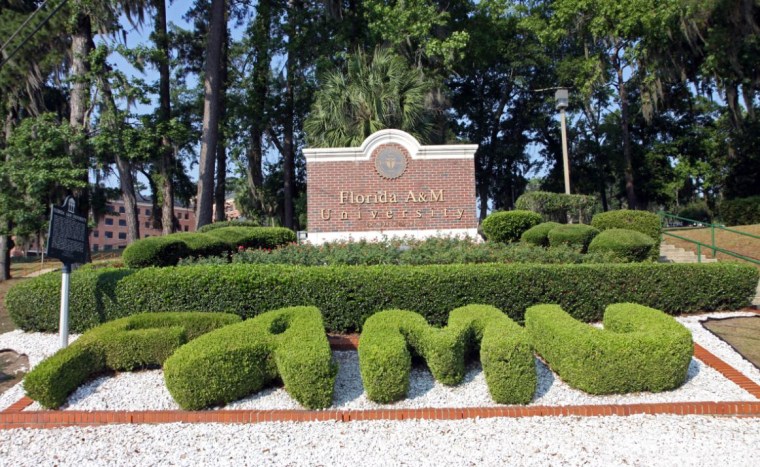
This week Supreme Court Justice Antonin Scalia argued against affirmative action because, according to him, Black students are better suited for “a less-advanced school, a slower-track school.” Based on the graduation rates, there is no support for Justice Scalia’s claim that the nation’s highest ranked institutions are “too fast” for Black students. In fact, the opposite is true.
Black students actually have the lowest graduation rates at noncompetitive community colleges and for-profit colleges and the highest graduation rates at more selective institutions, irrespective of affirmative action policies.
According to The Integrated Postsecondary Education Data System (IPEDS) the three universities that have the highest graduation rates for Black students are Yale (98 percent), Harvard (97 percent) and Princeton (97 percent). Stanford University, a private university with an affirmative action policy, has a 91 percent graduation rate for Black students; yet the University of California – Berkeley, a state university that follows a statewide ban on affirmative action, has a 77 percent graduation for Black students.
However, there is partial truth to Justice Scalia’s point that, “most of the black scientists in this country don't come from schools like the University of Texas.” According to data from the National Science Foundation, Black scientists are most likely to come from two basic types of institutions: (1) Institutions with a Carnegie classification of “Very High Research Activity;” and (2) Historically Black Colleges and Universities (HBCUs).
According to a recent report from the National Science Foundation 21 of the top 50 institutions for producing Black graduates who go on to receive their doctorates in Science and Engineering (S&E) are HBCUs. Among the 29 Traditionally White Institutions (TWIs), all but four have a Carnegie classification of “Very High Research Activity.”
HBCUs produce Black scientists, because they don’t focus on weeding out students; they focus on building up students.
Among the HBCUs, none have a Carnegie classification of “Very High Research Activity” and only two have a classification of “High.” In total, among the top 50 institutions, HBCUs collectively produced 1,819 Black graduates who earned a doctorate in S&E, PWIs produced 1,600, and foreign institutions produced 798.
None of the southern TWIs, such as Georgia State University (GSU), University of Southern Mississippi, and University of Memphis, which are known to have a Black enrollment that is larger than most single HBCUs made the top 50. With more than 10,000 Black students, Georgia State enrolls more Black students than the entire Atlanta University Consortium (AUC) combined, yet every AUC school (Clark, Morehouse and Spelman) made the list, but Georgia State did not.
When it comes to producing Black graduates who go on to earn Ph.D.’s, HBCUs compete successfully with the nation’s best universities, including Ivy League universities, elite private colleges, and flagship state universities. There really is no comparison between HBCUs and non-research intensive TWIs.
These are the top 10 U.S. baccalaureate-origin institutions of Black S&E doctorate recipients:
- Howard University (HBCU)
- Spelman College (HBCU)
- FL A&M University (HBCU)
- Hampton University (HBCU)
- Xavier University (HBCU)
- Morehouse College (HBCU)
- Morgan State University (HBCU)
- NC A&T State University (HBCU)
- Southern University and A&M College (HBCU)
- Tuskegee University (HBCU), University MD, Baltimore County

Are HBCUs more successful in producing Black scientists because they are “slower-track?” The answer is no.
I recently spoke at a Black history month event for one of the largest aircraft manufacturers in the nation. At a private dinner with executives of the company, someone spoke of the difficulties with recruiting Black engineers to the company. He believed that the difficulty of STEM majors in college reduced the pool of potential applicants.
This was my response:
You can make any major as easy or as difficult as you want it to be. In theory, philosophy could be the most difficult major at the university, and engineering could be the easiest, depending on how the classes are structured and taught. STEM disciplines are not difficult by nature, they are difficult by design. Because they are popular, specific courses are included in the curriculum to ‘weed out’ students. However, the difficult aspects of these courses have nothing to do with the ability or potential to build your product.
Interestingly, no one challenged my audacity to assert that "weed out" courses did not build any skills associated with producing aircraft.
HBCUs produce Black scientists, because they don’t focus on weeding out students; they focus on building up students. HBCU undergraduate classes are often structured more like TWI graduate courses; in that the coursework is more diverse, professors are more understanding, and the overall goal is to teach for a better understanding, not eliminate the perceived weak. Further, most HBCU graduates receive their Ph.D. in STEM disciplines from TWIs; further demonstrating that the training is transferrable beyond the HBCU.
Not having “weed out” courses does not make an institution easy or “slower-track.” It makes the institution more responsive to the students and also more amenable to the demands of the labor market.